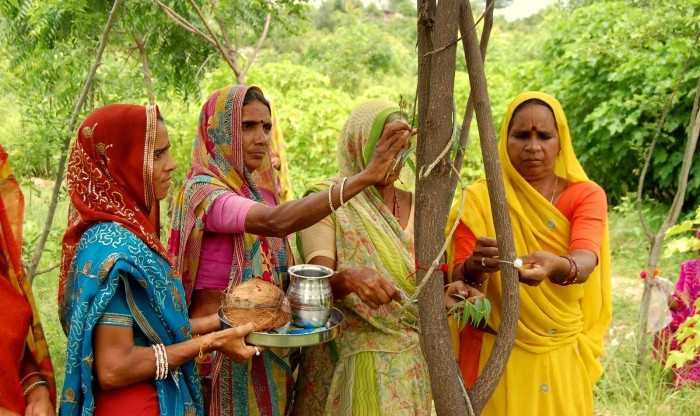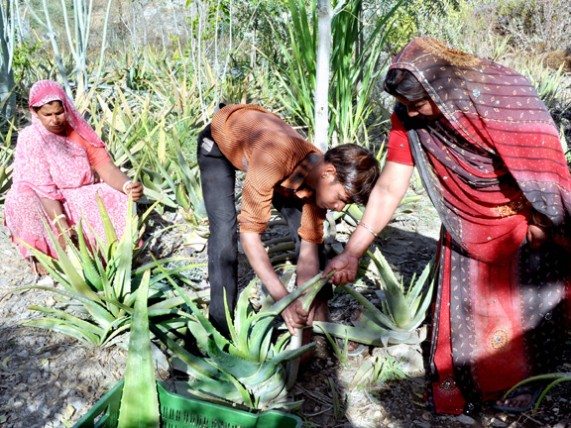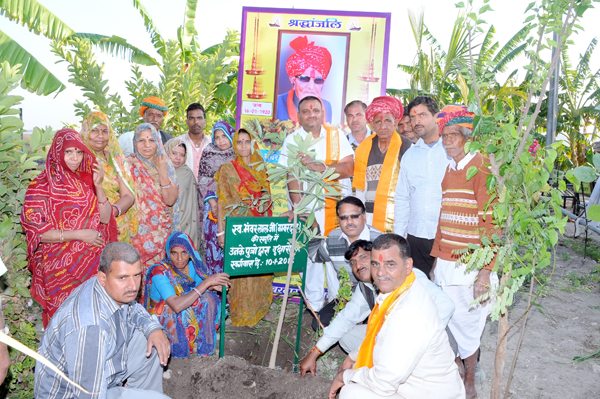For the last few years, Piplantri village in India’s Rajasthan region has found a beautiful way to celebrate women.
They have created a tradition that benefits both locals and the planet and saves girl children.
When a baby girl is born, 111 trees are planted in honour of her. The villagers gather and plant the more than hundred fruit trees in a wonderful example of eco-conscious tradition.
Over the last six years the people of Piplantri have planted over a quarter of a million trees, including neem, sheesham, mango, Amla, on the village’s grazing commons.
The locals tend to the trees and to protect them from termites and other insects, they plant aloe vera plants around them.
What’s more these fruit trees and aloe vera plants are now a source of livelihood for several residents.
Village residents also collect 21,000 rupees between themselves and 10,000 rupees from the girl’s parents. This sum of 31,000 rupees is placed into a 20-year fixed deposit for the girl.
Parents who partake in the tradition are legally bound by a signed affidavit which states that their daughter will receive a proper education.
The affadavit also mandates that the girl should be married only after she reaches legal age and the trees planted after her birth have been correctly looked after.
It’s a wonderful initiative when you consider the startling facts about gender discrimination here, especially the treatment of women and girls.
On an average 60 girls are born in the region every year, according to the village’s former school principal Shyam Sundar Paliwal, who was instrumental in starting this initiative in memory of his daughter Kiran, who died a few years ago.
For about half of these births, parents are reluctant to accept the girl children, Paliwal says.
Such families are identified by a village committee comprising the village school principal along with village members for inclusion in the tree-planting process.
“We make these parents sign an affidavit promising that they would not marry her off before the legal age, send her to school regularly and take care of the trees planted in her name,” says Mr. Paliwal.
Interestingly, the locals also plant 11 trees whenever a family member dies from the village, which is home to about 8,000 inhabitants.
Villagers claim there have been no police cases or crime here for the last 7-8 years,
“Rajasthan is quite backward in terms of village development… So we need to work hard towards creating more and more empowered villages,” Mr Paliwali said.











